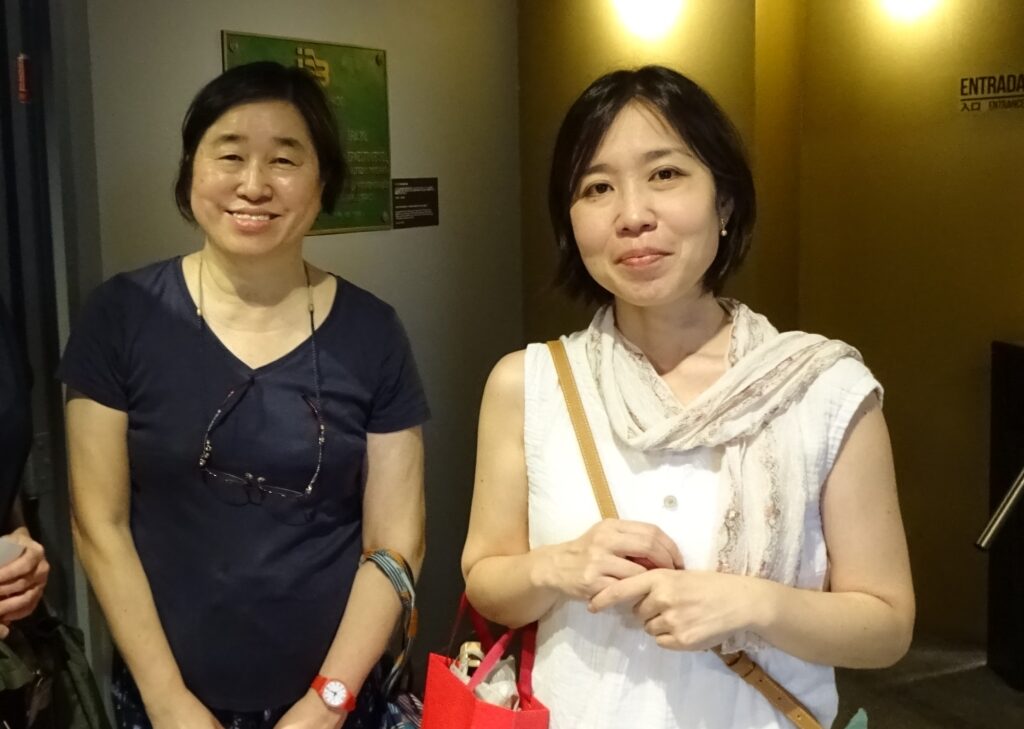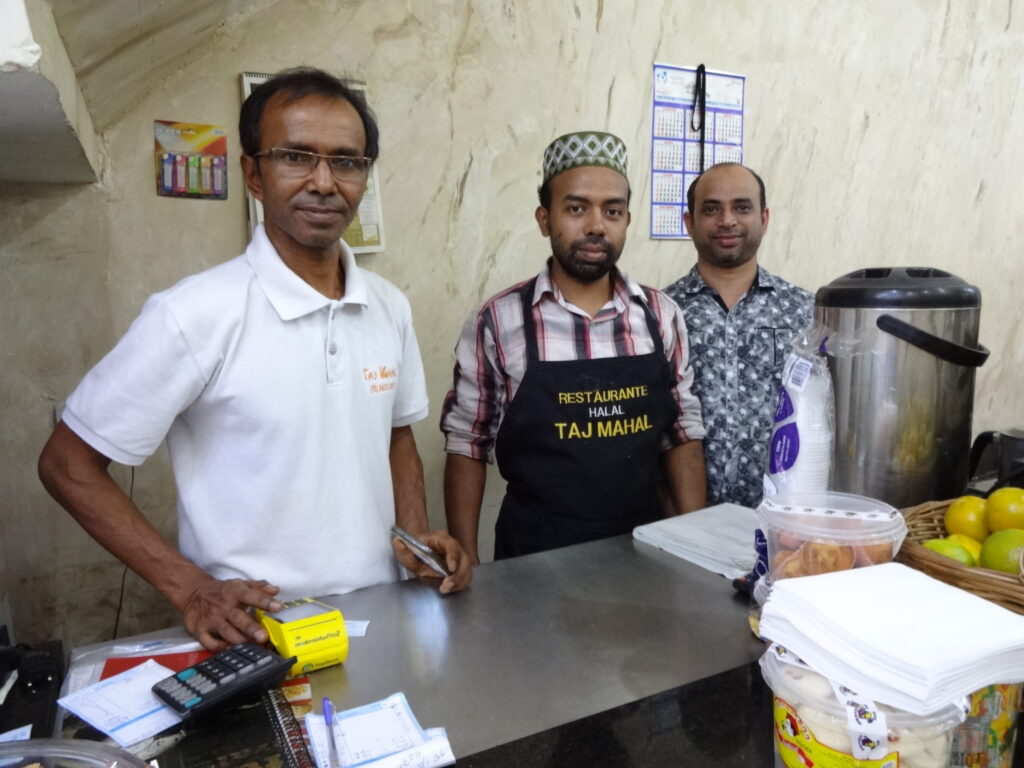Different Views of Young People’s Overseas Orientation: Asian Countries vs. Japan
The original article in Japanese was included in Journal Global Management No.475 in January/February 2024 edition, published by Japan Overseas Enterprises Association, Tokyo Japan. The following English version was translated by Kazuko YOKOYAMA.

Profile of the Article contributor
Kazuko Yokoyama was born in Hokkaido, Japan. After graduating from Hokkaido University, she earned an MBA from Indiana State University in the United States and PhD.in Economics from Kyoto University, Japan. She had worked for UN Organizations such as ILO, UNHCR, and FAO before returning to Japan for teaching at university. Currently CEO of International Career Development, Inc., and part-time university lecturer.
Tomoko Oura was born in Hyogo Prefecture, Japan in 1979 and grew up in Kobe City until graduating from high school. After graduating from the Faculty of Education at Shinshu University, she has lived in Sao Paulo, Brazil since 2001. She has been working as a freelance journalist and writer for the Nikkei Newspaper in Brazil and is also working in editorial work.
The Realities of Japanese Youth’s Inward-Orientation
In recent years, it has been pointed out that Japanese youth are inward-looking. Japanese university students do not have a sense of crisis that the Japanese economy is weakening. For example, when we warn them at university classes that Southeast Asia is the region where the economy will be growing near future, they show little interest.
On the other hand, when we go abroad, it is not unusual to meet talented and aggressive youngsters in their 20s and 30s who hail from Asian countries. They can work in their native languages, and they are also fluent in English. While their home countries are their focus, they are also looking for any places in the world where they can work and are actively moving to countries that are advantageous to them.
Trying to Take Chances
The aggressiveness of young people in Asian countries is also evident in classes at university where both Japanese and non-Japanese are enrolled. A good example is a student who applied for the JCK Youth Forum (Japan, China, Korea Youth Forum) in 2023, a project organized by the United Nations Association of Japan, China, and Korea with the aim of strengthening ties among the youth of the three countries. Applicants must be undergraduate or graduate students of Japanese nationality under the age of 26, although international students currently enrolled in Japanese universities are also eligible to apply. The forum was held in China in 2023, and all travel and lodging expenses to the venue were covered by the organizers. When Professor Yokoyama encouraged all her students to apply during class at the university where she teaches, only two out of 83 students, a Korean student and a Vietnamese student, applied. “Where are the Japanese students?” She was surprised to see the reality that Japanese youth are more inward-looking than she had expected.
What was even more surprising was that a Vietnamese she had previously met contacted her after the application deadline, even though he was not eligible to apply. He had studied at a Japanese graduate school and was already working for a Japanese company at the time of application and was three years older than the age limit. However, he expressed that he had already negotiated with his company to participate in this forum and received permission from the president to use his paid leave for the forum, so he contacted Professor for consideration. If the application deadline had passed and the application conditions were not met, any Japanese student would have given up immediately, but the Professor Yokoyama was amazed at the aggressive attitude of the young man who tried to take advantage of the opportunity.
Asian countries are not as economically rich as Japan, and young people in these countries know that there are not many opportunities with favorable conditions, let alone travel abroad. Today, for example, Japanese students have plenty of opportunities to receive English language training abroad, and foreign countries are familiar to them. It is truly unfortunate that many young Japanese try to avoid the hardships of living abroad.
Asian youth outside of Japan with an eye on living in the world
The reason why Japanese youth have little sense of crisis in their own economy may be largely because they are being fed at this very moment. However, looking at Japan’s GDP per capita, it was the second largest in the world in 2000, but in 2021 it had dropped to 27th place. It cannot be said that the day will come when young Japanese must go abroad to earn foreign currency like the youth of other Asian countries.
The number of Nepalese who are working abroad may not be highly skilled, but they have been rapidly increasing in Japan as technical interns and international students, etc. The Statistics of the Japanese Ministry of Justice recorded 139,393 Nepalese were accepted to Japan (+42,284 in the previous year) in 2022. The country that had accepted the largest number of Nepalese workers, which is considered the poorest economy in Asia, is Malaysia. Malysia accepted approximately 380,000 Nepalese workers in 2020 and 700,000 in 2016. The second most Nepalese accepting country is Qatar, which currently has about 350,000, and many other Gulf countries follow.
The countries that English-speaking Nepalese currently find most attractive are Australia, New Zealand, and Canada, unfortunately not Japan. In Australia, they can earn about twice the hourly wage of their Japanese counterparts for the same work. If you think that young Nepalese do not know the world because they come from the poorest country in Asia, it is quite the opposite. Because their own economy is sluggish, they see with their own eyes the economic situation of countries around the world, exchange information on entry visa conditions, etc., analyze the current situation, and live robustly. A Cambodian friend who works for a Japanese company says that he and his Cambodian friends who work in various parts of Asia get together in Korea to exchange information while they enjoy sightseeing.
Design Your Life Proactively
In an age when information can be easily exchanged with foreign countries via the Internet, it seems that young people in Asian countries are already ahead of their Japanese counterparts in the way of life in which even ordinary people pass national borders to eat and turn the economy around both domestically and internationally. In the future, Japanese youth must not only cooperate with, but also compete with such people in Asian countries.
Globalization will accelerate further in the future. The corporate environment is changing dramatically, and the Japanese employment system where employees work for the same company until their mandatory retirement age is giving way to a Western-style job-based employment system. We hope that Japanese youth will become aware of the major trend of globalization and look to experience other countries to gain firsthand knowledge of the job-based system that requires individuals to design their own work life on their own initiative, thereby increasing their chances in life, which they will only get once.

ABOUT ME

Kazuko Yokoyama was born in Hokkaido, Japan. After graduating from Hokkaido University, she earned an MBA from Indiana State University in the United States and PhD.in Economics from Kyoto University, Japan. She had worked for UN Organizations such as ILO, UNHCR, and FAO before returning to Japan for teaching at university. Currently CEO of International Career Development, Inc., and part-time university lecturer.
Recent Publication
Newsletters
‣ January, 2026: ICD Japan Newsletter No. 8
‣ January, 2025: ICD Japan Newsletter No. 4
‣ April, 2025: ICD Japan Newsletter No. 5
‣ June, 2025: ICD Japan Newsletter No. 6
‣ October, 2025: ICD Japan Newsletter No. 7
‣ April, 2024: ICD Japan Newsletter No. 1
‣ July, 2024: ICD Japan Newsletter No. 2
‣ October, 2024: ICD Japan Newsletter No. 3
‣ January, 2025: ICD Japan Newsletter No. 4
